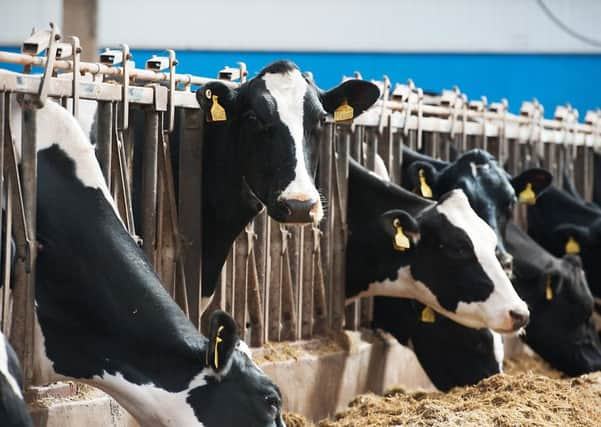Get set for tough trading after Brexit, farmers warned
This article contains affiliate links. We may earn a small commission on items purchased through this article, but that does not affect our editorial judgement.


Speaking in Perth, farm consultant Richard King pointed out that even if the industry avoided being pushed to the side by other sectors, UK farmers had to prepare for a more competitive trading environment post Brexit.
• READ MORE: Agriculture bodies team up to offer Brexit advice
Advertisement
Hide AdAdvertisement
Hide AdWith so much uncertainty over future farm policies swirling around in the political mists, he advised farmers to concentrate on improving their efficiency and managing their costs.
By increasing their productivity they would be better prepared for the future, he claimed after pointing out that looking at volumes of output relative to volumes of inputs rather than prices this would show how efficient their farms were.
Using this measure nationally over the past 40 years, productivity had increased by 1.6 per cent per annum. However, the figures for the past decade had been much poorer with only a 0.8 per cent year-on-year improvement. Most of the progress in improving productivity had come from reducing the amount of labour involved in the industry.
When it came to the financial figures, the most significant factor in farm profitability was the relative value of the euro and sterling. The recent collapse in the pound would, he predicted, see farm profits rise in 2017. “This is the most significant factor but with inputs being imported at higher costs, it will be a short-term boom.”
Looking ahead, King’s colleague Michael Haverty predicted the devolution of farm policy would provide a “battleground” in the coming years between the UK and the devolved nations.
He expected farm support in England to fall by 50 per cent by 2025 and during that timescale, “farm” support may morph into “rural, food or environmental” support.
The Scottish reduction in support would be slightly less, he believed as farming was relatively more important to the economy north of the Border. Public support for farming in Scotland would be far more targeted with specific programmes.
Advertisement
Hide AdAdvertisement
Hide AdThese would, he believed, include a continuation of support in the hills along with headage support for beef cattle while more money would go into promoting food.
• The need to support the beef cattle sector in Scotland was further underlined by the latest government statistics released yesterday, which showed cattle numbers down to their lowest level since the 1950s.
Commenting on the 1.7 per cent drop revealed in the December 2016 census, NFU Scotland’s livestock committee chair Charlie Adam said: “There isn’t enough profit, if any, in beef production without support.
“At current levels of support, it will take a lot more than efficiency improvements to change the fortunes of beef production – it needs market prices to rise substantially.”